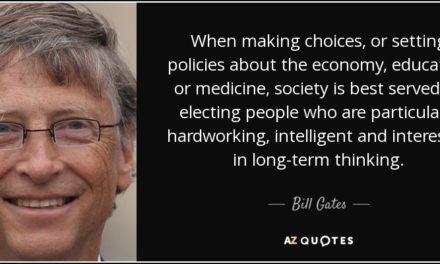By Leah C. Windsor (photo above) and Lauren Lee
The COVID-19 pandemic has laid bare how fragile the social support system for families – especially women and children – currently is. Women disproportionately do more than their fair share of unpaid, uncompensated, and invisible labor, and the quarantine has exacerbated this. Researcher Arlie Hochschild calls this the “second shift” – the feminized labor of housework and childcare. Moreover, women also do more of the “cognitive and emotional labor” at home – remembering doctor’s appointments, times to reapply sunscreen, arranging play dates (back when that was a thing), and children’s friends’ birthday parties. This also extends to figuring out the logistics of how to have a baby while working full time.
Even before the pandemic, women were forced to do elaborate calculations to accommodate having a baby – like cobbling together their available sick days and vacation leave, or wondering how they will make ends meet if they were only recently hired and had none accumulated. Babies need parents – especially mothers – in the early weeks and months. In the era of the COVID-19 pandemic, parents are understandably worried about sending their newborns to childcare. Mothers are also worried about losing their jobs if they don’t.
Tethering leave for family formation to employment makes no sense whatsoever. Paid parental leave is a critical intervention to equalize the wage gap between men and women, and to support families. It is impossible to simultaneously be pro-family and anti-parental leave.
In late February, Shelby County Mayor Lee Harris announced that parents in our community would be eligible for six weeks of paid parental leave, starting July 1, 2020. Earlier this week, the Shelby County Commissioners walked back this commitment and decided to postpone this policy for another year. Shelby County cannot delay implementing paid family leave (and paid sick leave), and must honor its commitment to implementing these policies next month.
First, the U.S. lags far behind other OECD countries in family leave policies. The average for our peer countries is just over 18 weeks of paid parental leave. FMLA only guarantees that you cannot be terminated for 12 weeks (per federal guidelines, although Tennessee offers an additional two weeks). This leave is unpaid, meaning that if parents – mothers, really – want to continue to get a paycheck they must use accrued sick leave. This disadvantages new employees who have not had the chance to accumulate sick leave, and it disproportionately penalizes women who must use their sick leave for having a baby, while men accumulate these hours.
Having a baby is not the same as having an illness. And, forcing women to use sick leave for family formation is tantamount to gender-based discrimination. It deprives women of the safety net meant to cover absence due to illness, not childbirth. This also applies to requiring women to take vacation leave for childbirth or adoption. As mothers, we can attest to the fact that the early weeks with newborn babies are nothing like a vacation. As gender scholar Valerie Hudson notes, when a woman gives birth in a hospital, she is the only one in the room who is not financially compensated for her labor – the woman who is literally in labor.
In addition to improving parental and sick leave policies, we also need to double down again on support for families by increasing funding for universal pre-k child care. Especially in the era of the COVID-19 pandemic, parents cannot both leave children at home and also show up to work. And, for those fortunate to have work-from-home jobs, the competing demands of juggling at-home child care, homeschooling, and maintaining work commitments is more than parents can reasonably be expected to shoulder on their own. Decent societies invest in their future – and this means supporting parents and children.
Economist Nancy Folbre argues that children are a public good. Children are future voters, wage-earners, and taxpayers. Certainly parents derive unique benefits – like a child’s first smile, first steps, or first day of kindergarten – from their children. But childcare has a $99.3 billion dollar impact on state economies. Support for women and families is completely uncontroversial in other OECD countries to which the U.S. compares itself, because they see the long-term benefits that children provide in society – as citizens who participate in a democracy and wage-earners that are the country’s economic engine.
The COVID-19 pandemic has put excessive strains on families this spring. Many parents have lost their jobs and access to child care. Yes the budget is tight, but the Commission must honor its commitment to families by providing family leave starting next month. The priority should be the families and children who have borne the brunt of the economic devastation brought about by the COVID-19 pandemic.
Local leaders have come together to petition the Commissioners to reconsider their decision. Shelby County Mayor Lee Harris said it best: “Working families should not have to choose between their job and taking care of their health or the health of a family member. Paid sick leave and parental leave policies should not be put in jeopardy in this budget process. We should not balance our budget on the back of employee benefits.”
**
Dr. Leah Windsor is a Research Assistant Professor in the Institute for Intelligent Systems at The University of Memphis. She studies language and politics in international relations, and gender and bias in family formation in society. Her book (co-authored with Dr. Kerry Crawford), “The PhD Parenthood Trap: Gender, Bias, and the Elusive Work-Family Balance in Academia,” is forthcoming with Georgetown University Press in 2021.
Lauren Lee served as Press Secretary to Mayor Lee Harris and aided in drafting the Paid Parental Leave policy that was approved by the Shelby County Commission.






